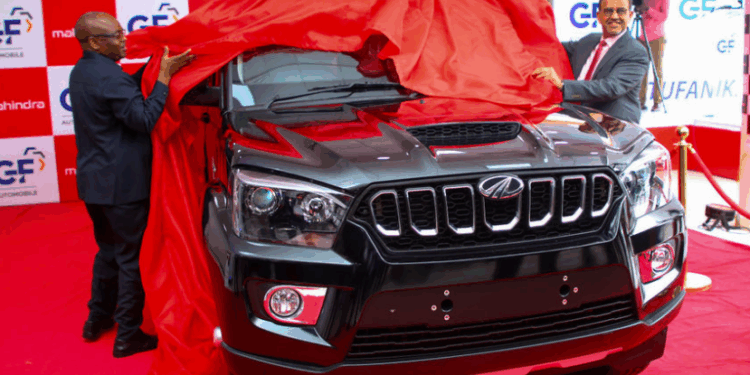The Tanzanian automotive landscape is on the cusp of a major transformation. For years, the market has been dominated by used vehicle imports, making the journey to new car ownership challenging for many. However, a landmark investment set at TZS 10 billion is poised to fundamentally change this.
This capital injection marks the start of a new local vehicle assembly operation, bringing global expertise and technology right to our doorstep. It is a decisive move that promises to create jobs, reduce the cost of brand-new vehicles, and establish a significant foundation for the country’s “Make in Tanzania” industrialization drive.
The New Era of ‘Make in Tanzania’
This initiative is a direct response to the government’s push to attract foreign direct investment and localize manufacturing, moving Tanzania up the economic value chain. The establishment of this assembly plant is more than just a factory opening; it signifies confidence in Tanzania’s economic future and its potential to become a regional manufacturing hub.
A Landmark Partnership: GF Automobile and Mahindra
The TZS 10 billion project is the result of a powerful collaboration between local strength and international expertise. The Tanzanian automaker GF Automobile has partnered with the Indian automotive giant, Mahindra & Mahindra. Mahindra is renowned globally for its rugged, durable vehicles, including tractors and SUVs, making this partnership a perfect fit for the demanding conditions of East African roads and the critical needs of the agricultural sector.
The investment is dual-focused: a major new facility will assemble passenger cars and pickup trucks, while a separate commitment has been made to establish a tractor assembly plant. Both components are crucial for uplifting both urban mobility and rural agricultural productivity.
Read more on the latest automotive market trends and news in Tanzania on the official automag.tz website.
What This Means for Tanzanian Buyers
For the average Tanzanian buyer, this local assembly initiative translates into tangible benefits, addressing two of the biggest challenges in the current market: affordability and quality.
Lower Prices and New Vehicle Accessibility
Currently, the upfront cost of importing a new vehicle is inflated by complex logistics, high freight charges, and various duties. By moving production to a local semi-knocked-down (SKD) assembly facility, the partners expect to significantly reduce these overheads. The result? New, reliable, and modern Mahindra vehicles will become more financially accessible to a larger segment of the Tanzanian public. This directly tackles the statistic that 94% of all vehicle sales in Tanzania are currently used imports.
The Boost to Local Employment and Skills
Local assembly is a massive catalyst for economic growth. The new plant is expected to generate numerous job opportunities, not just in the factory itself, but across the entire supply chain—from component suppliers to logistics and after-sales service networks. Furthermore, the partnership includes a focus on skills transfer, training Tanzanian technicians and engineers in global manufacturing standards.
Focusing on Future Production: Cars and Pickups
The initial focus will be on the assembly of Mahindra’s popular line of pickup trucks and passenger cars. For buyers considering their next vehicle, the launch of these locally-assembled units presents a compelling case, particularly when weighing the decision between a new, locally-made car and a used import.
Practical Vehicle Care Tip: The Advantage of a New Start
When you purchase a locally assembled new car, you gain a distinct advantage over the used import market: predictable longevity and maintenance.
- Tip for Buyers: New vehicles come with a full manufacturer warranty and zero history of hidden damage or irregular maintenance. This means your initial years of ownership will have significantly lower, more predictable maintenance costs compared to a used import of unknown history.
- Actionable Advice: To ensure your new vehicle delivers its promised performance, strictly adhere to the manufacturer’s scheduled maintenance intervals for the first 50,000 km. Local assembly means that official spare parts are more likely to be readily available, reducing downtime and ensuring the correct components are always used. Discover additional tips in our driving section on how to maximize your car’s lifespan and resale value.
While the new assembly plant focuses on brand-new cars, the pre-owned market remains vital. To find second-hand cars that have proven their durability in the Tanzanian climate, such as the hardy Toyota Land Cruiser or the efficient Suzuki Swift, check out auto24.tz.
Aligning with the Green Future
The government’s enthusiasm for the automotive sector extends beyond traditional internal combustion engine (ICE) vehicles. There is a strong, concerted effort to attract investors in Electric Vehicle (EV) assembly.
E-Mobility and Tax Incentives
A key factor supporting new assembly and production is the supportive policy framework, especially for green technology. The government has already taken steps to make EVs more competitive by granting certain excise duty waivers, which lower the overall tax burden compared to their petrol-powered counterparts.
The push for e-mobility is underpinned by Tanzania’s natural resources, including significant lithium mineral deposits that could eventually be used to make electric batteries, further reducing local production costs.
For drivers looking to explore sustainable mobility, EV24.africa offers import options for electric cars, expanding choices in the rapidly growing East African EV sector, aligning perfectly with the government’s green industrialization vision.
Conclusion
The TZS 10 billion investment by GF Automobile and Mahindra & Mahindra is more than a financial figure; it is a turning point for Tanzania’s economy and its automotive consumers. By promoting local assembly of reliable pickup trucks and passenger cars, the partnership will foster job creation, enhance local expertise, and ultimately make new car ownership a reality for more Tanzanians. This strategic move, coupled with strong policies supporting E-mobility, firmly positions Tanzania as a manufacturing powerhouse in the East African region.




